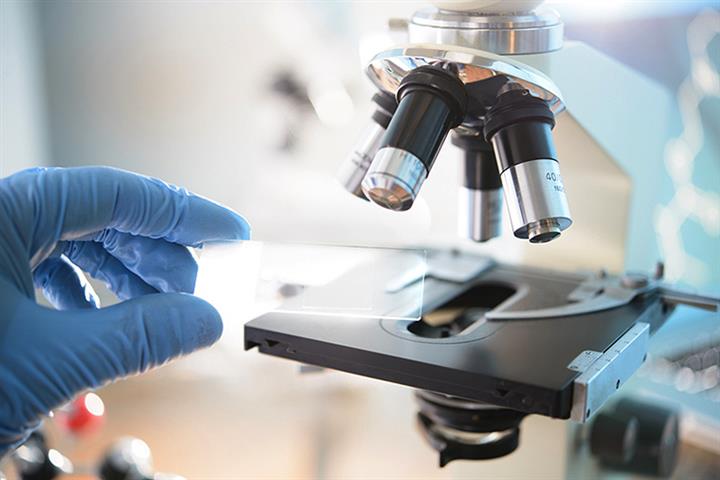 China Okays First Clinical Trial of Gene-Editing Therapy
China Okays First Clinical Trial of Gene-Editing Therapy(Yicai Global) Oct. 27 -- China has given permission for a gene-editing therapy to be used in a clinical trial for the first time.
The Center for Drug Evaluation under China’s National Medical Products Administration approved a clinical trial of EdiGene’s ET-01, a gene-editing therapy for beta thalassemia, the Beijing-based biotech firm said today. The trial will assess its safety and efficacy in transfusion-dependent beta thalassemia patients.
ET-01 “repairs patients’ gene defects to make up for their hemoglobin deficiency,” Chief Executive Wei Dong told Yicai Global.
The entire treatment process is more complex. Wei explained that it involves extracting hematopoietic stem cells from the patients, modifying the cells via gene editing and transferring the modified cells back into the patients to restore the normal functions of blood cells.
Using the therapy to treat other blood diseases will be easier after it has been clinically validated, he added.
Thalassemia is a rare hereditary hemolytic anemia disease caused by genetic defects. Without effective treatment, patients rarely live beyond 20 years of age. The current standard treatment for blood transfusion-dependent patients is to give them one blood transfusion every two to five weeks, but long-term blood transfusions are likely to damage their organs.
Set up in 2015, EdiGene develops drugs and innovative therapies for genetic diseases and cancers based on genome editing. Founder Prof. Wei Wensheng graduated from Michigan State University in the United States with a doctor’s degree in genetics, according to the firm’s website.
EdiGene just completed a CNY450 million (USD67.2 million) B-round financing. The funds will go to advance clinical research of its products and expand its business teams, according to Chinese media reports earlier this month. The firm has raised CNY700 million over the past two years.
Editors: Tang Shihua, Peter Thomas